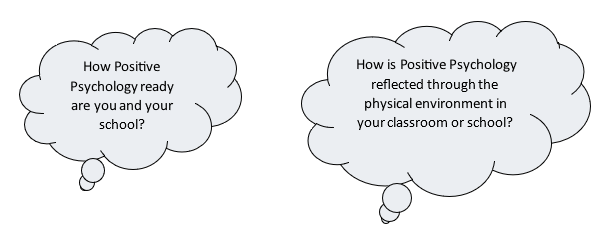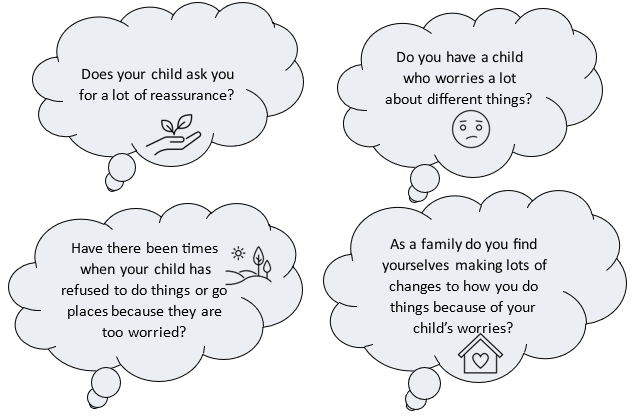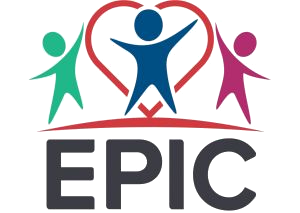Upcoming EPIC Training
MeLSA Training - Spring 2026
What is MeLSA training?
- MeLSA stands for Mediated Learning Support Approach
- MeLSA is a six-day training and supervision programme that builds the capacity of schools to support that learning needs of their pupils.
- MeLSA delivers evidence-based psychology in an accessible and interactive manner to ensure participants have a sound understanding of the psychology of learning
- The MeLSA tree provides a visual metaphor to communicate the aims of the training. The fruits are the skills that have already been mastered. The buds and flowers are what MeLSA aims to develop via tailored support (please also insert the photo of the tree which is included in the attachments)
What does it involve?
- Day One: Mediating and Growth Mindset
- Day Two: Thinking about Thinking
- Day Three: Recall and Memory
- Day Four: Psychology of Learning Maths
- Day Five: Psychology of Learning to Read and Write
- Day Six: Reviewing Learning and Making Action Plans
- Ongoing Supervision Sessions
To register your interest for the next MeLSA training please email info@epicleics.com
ELSA Training - Autumn 2025
- ELSA stands for Emotional Literacy Support Assistant.
- ELSAs are school staff who have received specific additional training from Educational Psychologists from whom they receive ongoing supervision following training.
- ELSAs are trained to plan and deliver programmes of support to pupils in their school who are experiencing temporary or longer-term emotional needs.
- Recognising and managing emotions
- Raising self-esteem
- Improving peer relationships
- Recovering from loss or bereavement
- Resolving conflict effectively
- Five full training days (covering the full 6-day ELSA training programme),
- 90-minute supervision session held in Spring 2026,
- A copy of the Emotional Wellbeing manual.
- There is an expectation that all ELSAs must attend ongoing supervision following certification to remain qualified as an ELSA.
- FREE to Discovery Trust Schools
- £595 for non-Discovery Trust Schools
- The training consists of 5 full days of training. Delegates must attend all sessions to be registered as an ELSA.
- Each day will run from 9.30am – 3.30pm, and will be held at Mowmacre Hill Primary School.
- 15th October 2025
- 29th October 2025
- 12th November 2025
- 26th November 2025
- 10th December 2025
To register your interest for the next ELSA training please email info@epicleics.com
Synergy
When a Child is Not Meeting the Outcomes in the EHCP: Understanding, Responding, and Supporting Progress
Date/location: Thursday 9th October 2025 at Wellington Place Primary School, Market Harborough
Thursday 19th March 2026 at Keyham Lodge School, Leicester
This Synergy session will focus on best practice when a child or young person is not meeting the outcomes outlined in their Education, Health and Care Plan (EHCP). Designed as a reflective discussion for SENCOs, the session will explore the complexities and challenges that arise when expected progress is not being made.
Key areas of focus will include:
- Identifying early signs that EHCP outcomes are not being met.
- Exploring underlying factors, such as unmet needs, environmental barriers, and systemic issues.
- Adopting a collaborative, child-centred approach to reviewing and adapting support strategies.
- Navigating the statutory review process, including when and how to request amendments to the EHCP.
- Engaging families and multi-agency teams in solution-focused planning.
Participants will be encouraged to share experiences, reflect on current practice, and consider practical strategies to support meaningful progress for children and young people with EHCPs.
Synergy Topic – Positive Psychology
Date/location: Thursday 11th December 2025 at Braunstone Community Primary School, Leicester
Thursday 7th May 2026 at Mowmarce Hill Primary School, Leicester

Positive Psychology is the study of what makes life worthwhile. It focuses on supporting people to thrive and it considers strengths and life satisfaction. Positive psychology has relevance for everyone, it is a universal approach. Positive psychology has been shown to reduce anxiety, increase resilience and promote self-growth, well-being and quality of life (Pociho et al., 2022). This Synergy topic will consider how the following three pillars of Positive Psychology relate to your practices and setting:
- Positive Experiences: Includes emotions such as happiness, gratitude, and contentment. o Positive Individual Traits: Involves strengths of character, resilience and optimism.
- Positive Institutions: Focuses on familial, educational, and societal systems that support the development of positive experiences and individual traits (Seligman & Csikszentmihalyi, 2000), relationships, productivity and meaning.
We will look not only at how to teach and support children using these approaches but also to reflect on ourselves as practitioners. There will be plenty of opportunity for discussions and shared practical examples between schools of how you all practice Positive Psychology.

EPIC Psychology’s Maths Pathway
Date/location: Thursday 22nd January 2026 at Wellington Place Primary School, Market Harborough
Thursday 25th June 2026 at Braunstone Community Primary School, Leicester
An estimated 25% of people have a maths learning difficulty (British Dyslexia Association), and globally 60% of children don’t achieve minimum proficiency – a situation described as a ‘learning crisis’ (UNESCO Institute for Statistics). These difficulties can impact academic and everyday functioning – a good grasp of maths is linked to greater success in employment and better overall health. Maths difficulties can involve problem with domain-specific abilities, such as fact retrieval and arithmetic as well as general abilities like working memory. Maths anxiety can also be a significant factor for contribution to students’ struggles with maths. Identifying maths difficulties early is essential to prevent long-term academic and mental health problems.
Key areas of focus:
- The difference between a maths difficulty, dyscalculia and maths anxiety by exploring the updated definitions from the SpLD Assessment Standards Committee (March 2025)
- Identifying a maths difficulty early and understanding where the gaps in a child’s maths’ knowledge and skills are (e.g. number sense, arithmetic etc)
- Ways to support both at universal and targeted level
- Promoting maths in the home environment and involving parents/carers in the development of maths skills
Participants will be encouraged to share experiences, reflect on current practice, and consider practical strategies and approaches to support the development of maths skills for all children.
Webinars
Online webinars – available only to Discovery Trust Schools
Parent Webinars
Time: 4-5pm
Date: (see individual webinar description below)
To book: your school will forward the link to you 24-48 hours prior to the webinar.
Being on the waiting list for an autism and/or ADHD assessment Understanding, Supporting and Empowering while you wait
Date: Wednesday 15th October 2025
Waiting for an autism and/or ADHD assessment can be a time of uncertainty, questions and mixed emotions – for individuals, families and professionals alike. This webinar explores what it means to be on the waiting list, the challenges that can arise during this period, and the proactive steps that can be taken to support wellbeing development, and inclusion in the meantime.
Join us as we share practical strategies, signpost helpful resources and open space for reflection and discussion. This session will offer insights and reassurance to help navigate the waiting period with confidence and compassion.
Supporting your child with their anxious feelings
Date: Wednesday 25th March 2026

If the answer to one or more of these questions is yes, then this webinar is for you! The webinar will talk about why it is so hard not to respond to your child’s anxieties as a parent or carer and why sometimes we may end up doing too much or making too many accommodations (changes) for our child. We will discuss the pros and cons of giving your child reassurance. If you have concerns that your child worries a lot but doesn’t talk about it and you don’t know how to approach it, we will look at this together. We will also look at helpful (green thinking) and unhelpful (red thinking) patterns and how a ‘green thinking’ approach can help. Finally, we will discuss a simple framework ‘7 Confident Thoughts’ for you to hold in mind as you support your child. Supporting your child’s worries is hard but together we will try to make this feel a little easier and help you feel that you have a way forward.

Understanding ADHD: A Parent’s Guide to Supporting Your Child
Date: Wednesday 20th May 2026
This informative and compassionate webinar is designed for parents and carers of children and young people with Attention Deficit Hyperactivity Disorder (ADHD). Whether your child has a diagnosis or you’re exploring the possibility, this webinar will offer practical insights and guidance to help you feel more confident and supported.
The following areas will be explored:
- What ADHD is and how it presents in children and young people.
- Common challenges at home and school, and how to respond effectively.
- Strategies to support emotional regulation, attention, and behaviour.
- The role of professionals and how to work collaboratively with schools and services.
- Ways to nurture your child’s strengths and build resilience.
The session aims to empower parents with knowledge, tools, and reassurance to better understand and support their child’s unique needs.
Staff Webinars
Time: 3.30-5pm
Date: (see individual webinar description below)
To book: contact info@epic.leics.com to request the link to the booking form
Teams link will be sent 24-48 hours prior.
All webinars will be recorded. A link to the recorded webinar is available on request and will be live for 1 month.
Autumn Term Webinars - Autism
Monotropic Thinking: A Deep Dive into Its Strengths and Challenges
Date: Thursday 9th October 2025
Join us for an engaging and informative webinar exploring monotropic thinking—a cognitive style often linked with autism, where attention is intensely focused on a narrow range of interests or tasks. This session will highlight the strengths of monotropic thinking, such as deep concentration, persistence, and creative problem-solving, while also addressing the challenges that can arise in everyday life and learning environments.
We’ll explore real-world examples of challenges, including:
- Difficulty with task-switching, such as moving between subjects in a classroom or adapting to sudden changes in routine.
- Sensory overload, especially in environments with competing stimuli that demand divided attention.
- Struggles with multi-tasking, like following group conversations or managing simultaneous instructions.
- Emotional distress when interrupted during deep focus or when unable to pursue a preferred interest.
- Barriers to accessing support, as monotropic individuals may not notice or respond to help offered outside their current focus.
The webinar will also offer practical strategies for support. This webinar is ideal for anyone interested in neurodiversity. Expect a balanced discussion, practical strategies for support, and opportunities for Q&A.
Sensory Overwhelm & Emotional Dysregulation: Understanding and Supporting Neurodivergent Experiences
Date: Thursday 6th November 2025
Sensory processing differences can have a profound impact on emotional regulation, especially for neurodivergent individuals. This webinar explores the interplay between sensory overwhelm and emotional dysregulation, offering insights into how everyday environments and experiences can trigger intense emotional responses.
We’ll unpack:
- What sensory overwhelm looks and feels like in real-world settings.
- How emotional dysregulation may manifest—such as shutdowns, meltdowns, or heightened anxiety.
- The impact on learning, relationships, and wellbeing.
You’ll also gain practical strategies for support, including:
- Environmental adjustments to reduce sensory load (e.g., lighting, noise, transitions).
- Co-regulation techniques to help individuals feel safe and supported.
- Predictable routines and visual supports to reduce uncertainty and anxiety.
- Emotion coaching and validation to build resilience and self-awareness.
- Collaborative approaches with families and professionals to create consistent support systems.
This session is ideal for professionals seeking to better understand and respond to sensory-emotional needs with empathy and effectiveness. Expect a balanced discussion, practical strategies for support, and opportunities for Q&A.
Supporting Transitions for Autistic Individuals: Strategies for Stability and Success
Date: Thursday 11th December 2025
Transitions—whether big or small—can be particularly challenging for autistic individuals, often triggering anxiety, confusion, or emotional distress. This webinar explores why transitions can be difficult and how we can proactively support smoother, more predictable changes across educational, social, and home environments.
We’ll cover:
- The cognitive and emotional impact of transitions for autistic individuals.
- Common transition points (e.g., starting school, changing activities, moving settings) and why they can be overwhelming.
- Signs of transition-related stress and how to respond supportively.
You’ll leave with practical strategies, including:
- Visual supports and social stories to prepare for change.
- Predictable routines and countdowns to ease transitions.
- Collaborative planning with families and professionals.
- Flexible approaches that honour individual needs and preferences.
- Post-transition support to help with emotional regulation and adjustment.
This session is ideal for anyone looking to build confidence and consistency around transitions for autistic children and young people. Expect a balanced discussion, practical strategies for support, and opportunities for Q&A.
Spring Term Webinars - ADHD
Safe Spaces: Where Can an ADHD Child Be Their Authentic Self?
Date: Tuesday 27th January 2026
Children with ADHD often navigate environments that misunderstand or overlook their unique ways of thinking, feeling, and expressing themselves. In this webinar, we’ll explore the critical importance of spaces that support neurodiversity—where ADHD children can feel safe, seen, and valued for who they truly are. We’ll examine how masking and camouflaging behaviours, often used to fit in, can negatively impact self-esteem and mental health. Through practical strategies and real-life examples, we’ll discuss how to create affirming environments at home, in schools, and within peer groups. Most importantly, we’ll centre the voices of ADHD children themselves, highlighting what authenticity looks and feels like from their perspective. This session is ideal for teachers and members of pastoral teams who are committed to fostering inclusive, empowering spaces for neurodivergent young people.
Brains Wired for Interest: Motivation and Attention in ADHD
Date: Tuesday 24th February 2026
ADHD is often misunderstood as a lack of attention, when in reality, it’s a difference in how attention is regulated— driven by interest, novelty, and emotional engagement. This webinar explores the neuroscience behind ADHD, focusing on the role of dopamine and why traditional approaches to motivation often fall short. We’ll unpack the spectrum between task paralysis and hyperfocus, helping participants understand how ADHD brains toggle between extremes. Practical strategies will be shared for tapping into intrinsic motivation, designing interest-based learning environments, and supporting executive functioning. Finally, we’ll challenge conventional views on discipline and productivity, offering a neurodivergent lens that prioritises curiosity, autonomy, and strengths. Ideal for educators and members of the pastoral team seeking to better support ADHD learners in meaningful and affirming ways.
Proprioception and the ADHD Body: Movement, Regulation, and Awareness
Date: Tuesday 24th March 2026
ADHD isn’t just about attention—it’s also deeply connected to how individuals experience and regulate their bodies. In this webinar, we’ll explore proprioception, the sense that helps us understand where our bodies are in space, and how it plays a vital role in emotional and behavioural regulation for children with ADHD. We’ll look at common movement-based behaviours like fidgeting, pacing, and sensory-seeking, reframing them as essential tools for selfregulation rather than disruptions. Practical strategies will be shared, including sensory diets, movement breaks, and proprioceptive activities that support focus and well-being. We’ll also examine the powerful link between body awareness and emotional regulation, offering insights into how movement can be used to foster calm, connection, and resilience. This session is ideal for educators and members of the pastoral staff looking to support ADHD children in holistic and affirming ways.
